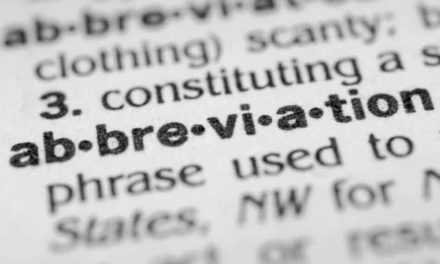Publication Data Abbreviated in Journal Articles
Although the publication data about the sources cited in an academic or scientific article are in many cases easily obtained and recorded, with some sources it can be difficult to determine exactly what the date of publication was, which edition applies and even, in some cases, who the author was. Among the challenges of recording the publication data required in scholarly bibliographies and lists of references or works cited can be determining how to record what you are and are not able to discover about when and where a source was published and who published it. Abbreviations are frequently used to keep references manageable yet also complete and accurate, so a list of common abbreviations with correct forms and a little explanation may make it easier to construct reference lists as well as read them. When more than one form of an abbreviation is given, one form should be chosen for use throughout any given list.
• When referring to publishers, the abbreviation ‘Co.’ for ‘Company’ is used, and although it is rare, an ‘s’ can be added to the end of the abbreviation to form the plural. Alternatively, ‘Inc.’ for ‘Incorporated’ or ‘Ltd’ or ‘Ltd.’ for ‘Limited’ can be used, so do check for the precise name of the publisher.
• The city of publication is generally not abbreviated, but other aspects of the place of publication often are. State abbreviations for the United States, for instance, are frequently included after American cities, especially if a city is not large or well known. These generally take a simple two-letter form with both letters uppercase (‘CA’ for ‘California,’ and ‘MI’ for ‘Michigan’), though in some styles the abbreviation can be longer and only the first letter is uppercase (‘Calif.’ and ‘Mich.’). For publication outside the United States, country abbreviations are sometimes added after cities of publication, especially if a particular city is not large or well known. These tend to take a simple two-letter form as well (‘FR’ for ‘France’ and ‘UK’ for the ‘United Kingdom’), but the country names can be written out as words instead.
• Most scholarly journals have standard abbreviations, such as YLS for the Yearbook of Langland Studies, and author guidelines will usually indicate via instructions or examples whether such abbreviations should be used or not. If they should be used, ensure that you use the correct form of each abbreviation and add whatever font might be required (italics, perhaps, or boldface) just as you would were you writing the title out in full.
• ‘Edn,’ ‘edn,’ ‘Edn.’ or ‘edn.’ means ‘edition,’ and an ‘s’ is added when forming the plural. However, ‘Ed.’ or ‘ed.’ can also mean ‘edition,’ again with an ‘s’ added to form the plural, and to confuse matters further, ‘Ed.’ or ‘ed.’ can also refer to an editor, so if you need to abbreviate ‘editor’ as well as ‘edition,’ using a form without the ‘n’ for the first and a form with the ‘n’ for the second may prove best. Remember that the edition should only be noted for second and subsequent editions of a publication; there is no need in most cases to note a first edition.
• For volumes, series, issues and supplements, the following abbreviations can be used. ‘Vol.’ or ‘vol.’ means ‘volume’ and an ‘s’ is added to form the plural. ‘No.’ or ‘no.’ means ‘number,’ again with an ‘s’ added for the plural. ‘Ser.’ or ‘ser.’ usually abbreviates ‘series,’ but’ sometimes an ‘s.’ alone is used for ‘series’ when combined with another letter or word, as in ‘o.s.’ (occasionally ‘OS’) for ‘old series,’ ‘n.s.’ (occasionally ‘NS’) for ‘new series’ and ‘s.s.’ (occasionally ‘SS’) for ‘second series.’ Finally, ‘S.,’ ‘S,’ ‘Suppl.’ or ‘suppl.’ abbreviates ‘supplement,’ with the longer forms particularly clear.
• If information about the publication of a source is lacking, an abbreviation can be used to report this. ‘N.d.’ or ‘n.d.’ means ‘no date,’ while ‘N.p.’ or ‘n.p.’ can mean ‘no publisher’ or ‘no place of publication’ (as well as ‘no page’). The placement of the ‘n.p.’ abbreviation will determine its precise meaning, so if you intend ‘no publisher,’ place the abbreviation where the publisher’s name would normally appear, not where the place of publication would normally appear.
You might be interested in Services offered by Proof-Reading-Service.com
Journal Editing
Journal article editing services
PhD Thesis Editing
PhD thesis editing services
Expert Editing
Expert editing for all papers
Medical Editing
Medical Editing Services
Research Editing
Research paper editing services
Book Editing
Professional book editing services
















